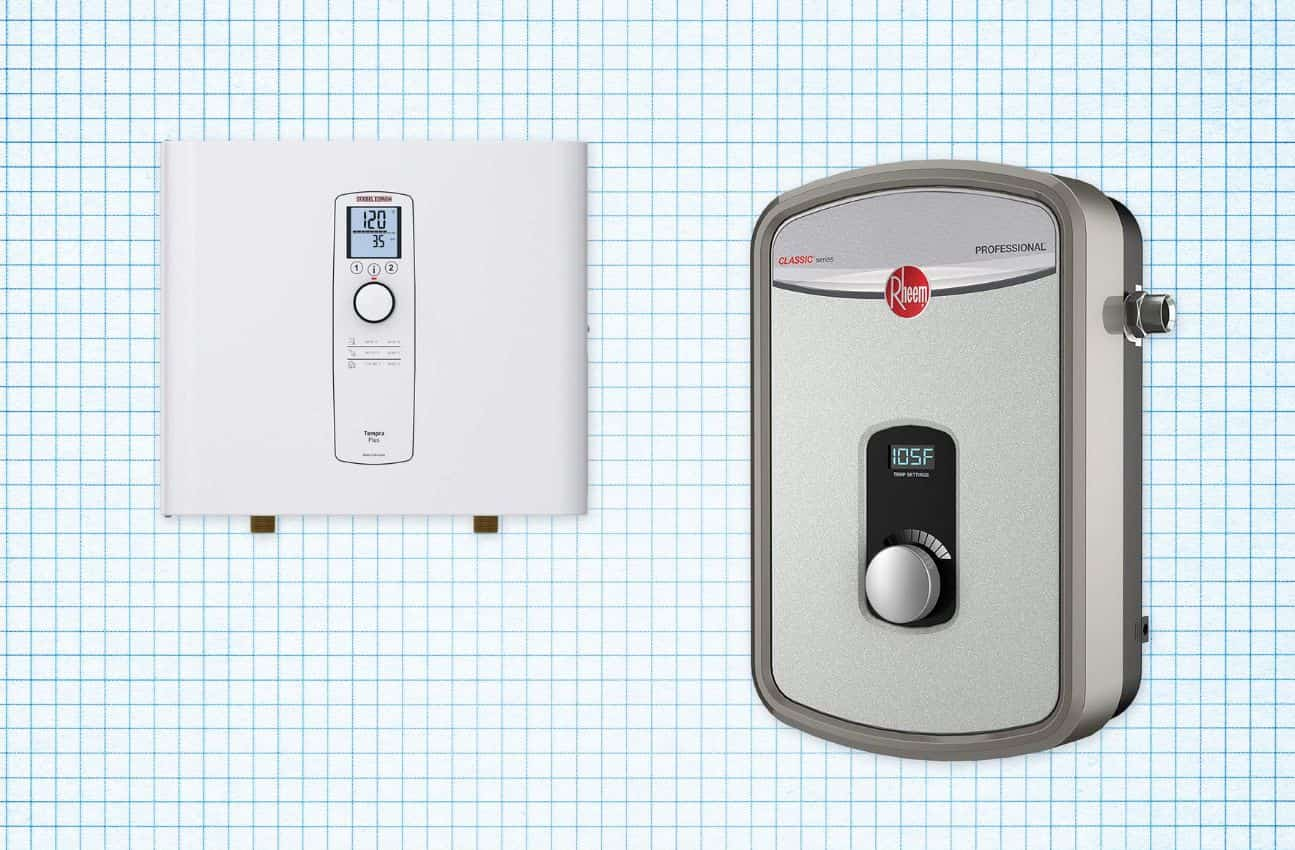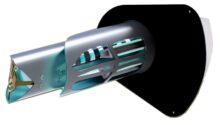Suppose you’re thinking about upgrading your water heater. If you’ve ever wondered what it would be like to ditch the bulky tank sitting in your basement or utility closet, you’re not alone.
Tankless water heaters, which are sometimes called on-demand systems, are catching people’s attention. They heat water only when you need it, and in a way, it seems like they’re built for convenience. But, are they really the better choice for your home? Let’s break it down a bit and figure things out together.

What’s the Deal With Tankless Water Heaters?
The first thing to know is that tankless water heaters operate without a tank, which is self-explanatory. Instead of keeping a big supply of hot water ready to go like the old-school systems do, they heat water as it flows through the unit.
That means you’re not paying to keep water hot all day long, which is a clear advantage..
There are two main flavors of these heaters:
- Gas-powered models: They’re great if you use a lot of hot water since they handle high demand pretty well. But the price tag for installation can climb a little higher.
- Electric models: These tend to be easier on the wallet upfront and are perfect for small homes or specific spots, like your guest bathroom.
Ultimately, you’re getting hot water without a giant tank hogging space in your home. Sounds like a sweet deal so far, right? But let’s dig a little deeper.
Why People Love Tankless Water Heaters
There’s a lot to like about these systems, and here’s why they’ve been stealing the spotlight lately:
1. Save Some Cash on Energy Bills
Ok, so tankless systems only heat water when you actually need it, which is a pretty efficient setup. Unlike traditional tanks that reheat the same water over and over, these systems help cut down on wasted energy. Over time, you might notice that your utility bills feel a bit lighter.
2. Hot Showers for Everyone
Picture this: you’re in the middle of a relaxing shower, and suddenly the hot water turns icy. Not fun, right? With a properly sized tankless system, you can have hot water all day long—no running out halfway through your shower. That’s a big deal for larger households.
3. Small and Tidy
Traditional water heaters are, let’s be honest, kind of big and clunky. A tankless unit, on the other hand, is compact and often mounts right on the wall. If space is tight in your home, this could be a game-changer for you.
4. Lasts a Good Long While
Most traditional water heaters hang in there for about 10 to 15 years. But with a bit of care, a tankless system can keep chugging along for up to 20 years. Sure, it costs more upfront, but the extra lifespan might make it feel worth it.
5. A Bit Better for the Planet
Using less energy doesn’t just help your wallet—it’s also easier on the environment. Plus, some places offer rebates to sweeten the deal if you go for an energy-efficient tankless option.
6. Less Fuss Over Repairs
These systems are built with fewer parts that are likely to break down. And, generally speaking, they only need a little tune-up every couple of years. That’s less hassle for you in the long run.

The Catch: What’s Not So Great
Alright, so here’s the thing: no system is perfect. Let’s talk about a few potential hiccups:
1. Sticker Shock Upfront
Tankless water heaters come with a higher price tag right out of the gate. And depending on your home, you might need to shell out for extra work like plumbing or electrical upgrades. That can add up quickly.
2. Can’t Do It All at Once
If you’re running the dishwasher, a load of laundry, and taking a shower all at the same time, a tankless system might struggle to keep up. They’re efficient, sure, but they do have their limits.
3. A Little Wait Time
Since the water isn’t hanging out preheated, it might take a few seconds longer to come out warm. Not a huge deal, but something to think about.
4. Installation Is a Bit of a Project
Depending on your setup, putting in a tankless water heater might involve more than just swapping out the old one. You could be looking at upgrades to your water pressure, gas lines, or wiring. A pro can help figure out what’s needed, but it’s something to plan for.
| Feature | Pros |
Cons |
|---|---|---|
| Energy Efficiency | Operates only when hot water is needed, reducing energy costs. | High initial cost and may require infrastructure upgrades. |
| Hot Water Supply | Provides unlimited hot water when properly sized. | May struggle with simultaneous use at multiple outlets. |
| Size and Installation | Compact design saves space and can be wall-mounted. | Complex installation may require updates to gas or electrical systems. |
| Durability | Can last up to 20 years with proper maintenance. | Higher upfront cost compared to traditional models. |
| Eco-Friendliness | Lower energy consumption reduces carbon footprint. | Not all models are suitable for large homes or low water pressure areas. |
| Waiting Time | Instant hot water when the tap is turned on. | May take time to deliver hot water if the tap is far from the heater. |
| Maintenance | Requires servicing every 2-3 years, less prone to breakdowns. | Professional help may be needed for repairs or maintenance. |
So, Should You Make the Switch?
Here’s where things get a little personal—it really depends on your home and what you need. Ask yourself:
- How much hot water do you use? If your household has a lot of demand, you’ll want to make sure the system you pick can keep up.
- What’s your budget? The upfront cost is higher, but you could save money down the road.
- Are there rebates where you live? Some utility companies will help offset the cost, so it’s worth checking into.
My Two Cents: What I’d Recommend
Ok, so tankless water heaters are pretty awesome in a lot of ways. They’re efficient, they save space, and they’re great for people who hate running out of hot water. But if you’ve got a big family or use hot water in multiple spots at once, you’ll want to make sure the system can handle it.
If you’re seriously thinking about it, I’d say chat with a plumber you trust. They can help you figure out what works best for your home and whether the long-term benefits will outweigh the upfront costs.
At the end of the day, all anyone really wants is reliable hot water. Whether you go for a tankless setup or stick with the trusty old tank, the goal is to find something that works for you and your family.





